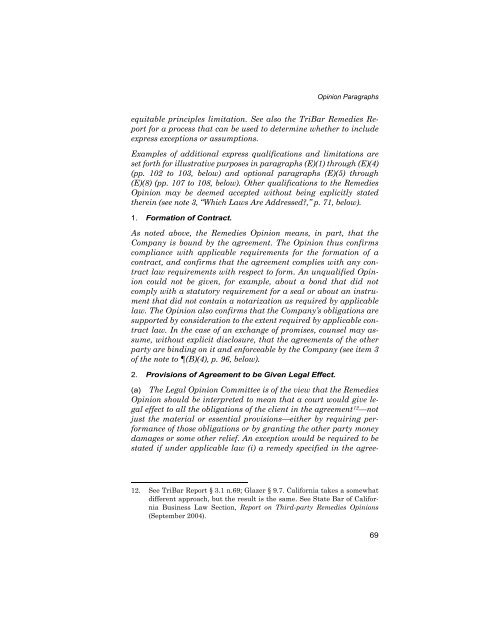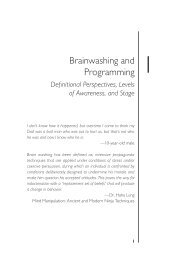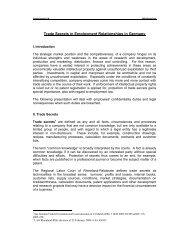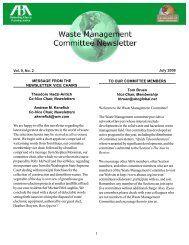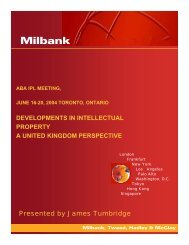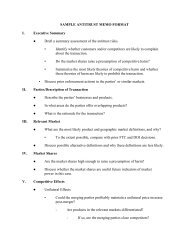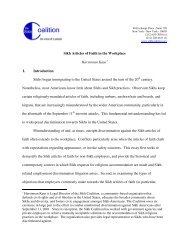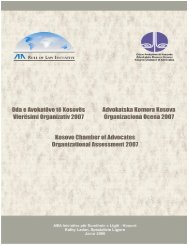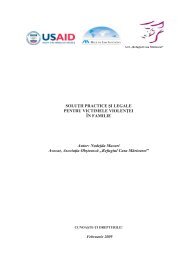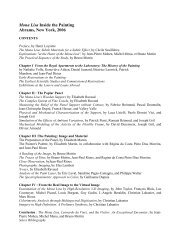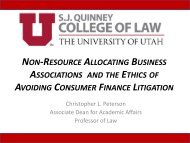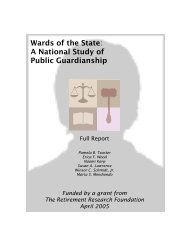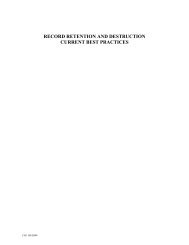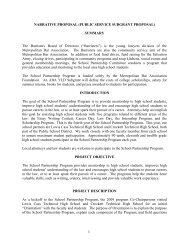Model Closing Opinion Letter (Annotated) - American Bar Association
Model Closing Opinion Letter (Annotated) - American Bar Association
Model Closing Opinion Letter (Annotated) - American Bar Association
Create successful ePaper yourself
Turn your PDF publications into a flip-book with our unique Google optimized e-Paper software.
<strong>Opinion</strong> Paragraphs<br />
equitable principles limitation. See also the Tri<strong>Bar</strong> Remedies Report<br />
for a process that can be used to determine whether to include<br />
express exceptions or assumptions.<br />
Examples of additional express qualifications and limitations are<br />
set forth for illustrative purposes in paragraphs (E)(1) through (E)(4)<br />
(pp. 102 to 103, below) and optional paragraphs (E)(5) through<br />
(E)(8) (pp. 107 to 108, below). Other qualifications to the Remedies<br />
<strong>Opinion</strong> may be deemed accepted without being explicitly stated<br />
therein (see note 3, “Which Laws Are Addressed?,” p. 71, below).<br />
1. Formation of Contract.<br />
As noted above, the Remedies <strong>Opinion</strong> means, in part, that the<br />
Company is bound by the agreement. The <strong>Opinion</strong> thus confirms<br />
compliance with applicable requirements for the formation of a<br />
contract, and confirms that the agreement complies with any contract<br />
law requirements with respect to form. An unqualified <strong>Opinion</strong><br />
could not be given, for example, about a bond that did not<br />
comply with a statutory requirement for a seal or about an instrument<br />
that did not contain a notarization as required by applicable<br />
law. The <strong>Opinion</strong> also confirms that the Company’s obligations are<br />
supported by consideration to the extent required by applicable contract<br />
law. In the case of an exchange of promises, counsel may assume,<br />
without explicit disclosure, that the agreements of the other<br />
party are binding on it and enforceable by the Company (see item 3<br />
of the note to (B)(4), p. 96, below).<br />
2. Provisions of Agreement to be Given Legal Effect.<br />
(a) The Legal <strong>Opinion</strong> Committee is of the view that the Remedies<br />
<strong>Opinion</strong> should be interpreted to mean that a court would give legal<br />
effect to all the obligations of the client in the agreement 12 —not<br />
just the material or essential provisions—either by requiring performance<br />
of those obligations or by granting the other party money<br />
damages or some other relief. An exception would be required to be<br />
stated if under applicable law (i) a remedy specified in the agree-<br />
12. See Tri<strong>Bar</strong> Report § 3.1 n.69; Glazer § 9.7. California takes a somewhat<br />
different approach, but the result is the same. See State <strong>Bar</strong> of California<br />
Business Law Section, Report on Third-party Remedies <strong>Opinion</strong>s<br />
(September 2004).<br />
69


